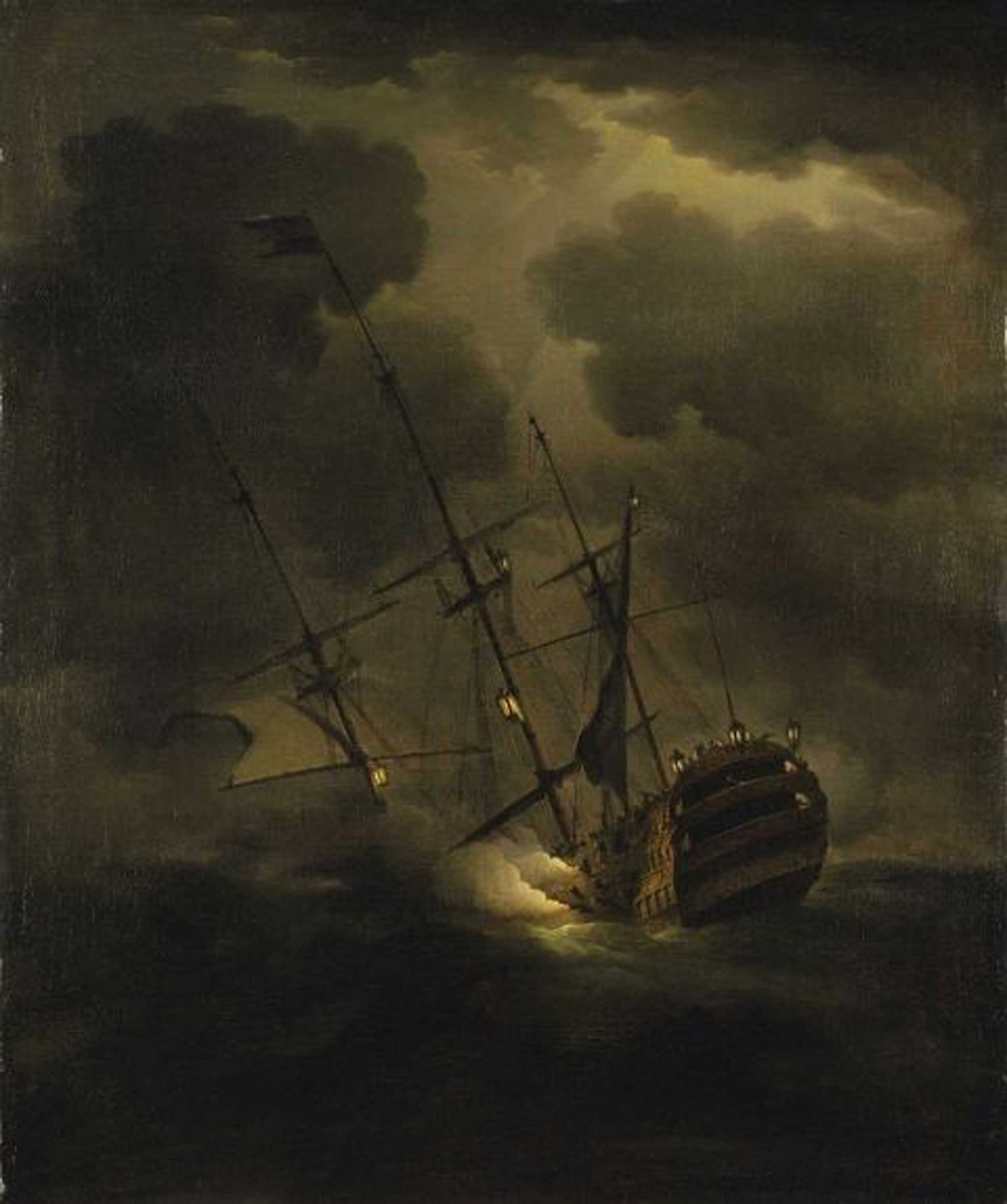In too deep: Warship wreck 'bounty hunter' under scrutiny from Britain's marine watchdog
Company searching for bullion on 18th-century vessel may have broken maritime law

Your support helps us to tell the story
From reproductive rights to climate change to Big Tech, The Independent is on the ground when the story is developing. Whether it's investigating the financials of Elon Musk's pro-Trump PAC or producing our latest documentary, 'The A Word', which shines a light on the American women fighting for reproductive rights, we know how important it is to parse out the facts from the messaging.
At such a critical moment in US history, we need reporters on the ground. Your donation allows us to keep sending journalists to speak to both sides of the story.
The Independent is trusted by Americans across the entire political spectrum. And unlike many other quality news outlets, we choose not to lock Americans out of our reporting and analysis with paywalls. We believe quality journalism should be available to everyone, paid for by those who can afford it.
Your support makes all the difference.A US marine salvage company is being investigated by Britain's marine watchdog for allegedly exploring the wreck of a 276-year-old British naval warship without permission. Odyssey Marine Exploration hailed the discovery of the HMS Victory, the predecessor to Nelson's famous flagship, as one of the most important maritime finds ever when they announced its discovery in the English Channel in 2008. It sank in 1744 with Admiral Sir John Balchen on board, and it was thought the wreck could well be carrying bullion and bronze cannon worth more than £600m.
But the discovery of the vessel has sparked controversy, with archaeologists and descendants of the 1,000 men who died, saying any attempt to recover gold or artefacts for profit is wrong and "distasteful".
The row has taken a further twist after it was revealed that the Marine Management Organisation (MMO), the UK's marine watchdog, is investigating allegations that Odyssey explored the wreck without a licence last year. Investigators are understood to be studying footage from a TV documentary filmed on an Odyssey vessel that seems to show the discovery of a human skull in mud on the sea floor. MMO is "currently undertaking an investigation into alleged activity in relation to the site of HMS Victory".
It is understood that one of the issues being considered is whether this activity required a licence.
Under maritime law, all naval vessels lost at sea are considered to have "sovereign immunity" and cannot be disturbed without governmental approval. But following the discovery of the Victory, the wreck was given a different status by the Ministry of Defence by being "gifted" to a new charity, the Maritime Heritage Foundation (MHF).
Founded by Lord Lingfield, a descendent of Admiral Balchen, following the wreck's discovery, the MHF negotiated an agreement with Odyssey to explore the wreck and potentially recover artefacts including the ship's bronze cannons. The Victory may have also carried gold coin bullion worth up to £620m. Odyssey is to receive the equivalent of 80 per cent of the value of recovered bullion and 50 per cent of the value of artefacts such as cannons.
But, under the terms of the original agreement between the MHF and the Government, any work to explore the site by disturbing silt or digging trenches can only be carried out once ministers have approved a programme in keeping with Britain's obligations under a Unesco underwater archaeology agreement.
Experts advising ministers agreed that the site, already raided by rogue Dutch salvers who stole a cannon, may need preservation by raising to the surface some artefacts already dragged by fishing vessels.
In a letter to David Cameron, Richard Temple West, a descendant of Admiral Balchen's daughter, said: "We appreciate that HMS Victory is an important historic wreck, but we feel this very fact, coupled with the fact that she is a both a grave and memorial, makes it entirely inappropriate that she should be subject to a commercial salvage contract."
The project still awaits ministerial approval. In an 2012 email to the Ministry of Defence, Lord Lingfield wrote that the MHF's scientific advisers had approved the "dusting of mobile surface sediment" on the wreck site as well as ensuring that cannon had been "prepared for lifting". In a second email to the MoD, Lord Lingfield wrote: "PLEASE could ministers give the go-ahead soon, we really need the summer time to carry out careful archaeological work as the at-risk items are recovered. It is now very urgent."
Odyssey insisted it was working closely to "ensure the protection of this important piece of the UK's maritime heritage".
The statement added: "Odyssey always seeks to fully comply with applicable regulatory regimes on projects that fall under the jurisdiction of government agencies, including the regulations of the Marine Management Organisation (MMO).”
Subscribe to Independent Premium to bookmark this article
Want to bookmark your favourite articles and stories to read or reference later? Start your Independent Premium subscription today.
Join our commenting forum
Join thought-provoking conversations, follow other Independent readers and see their replies
Comments